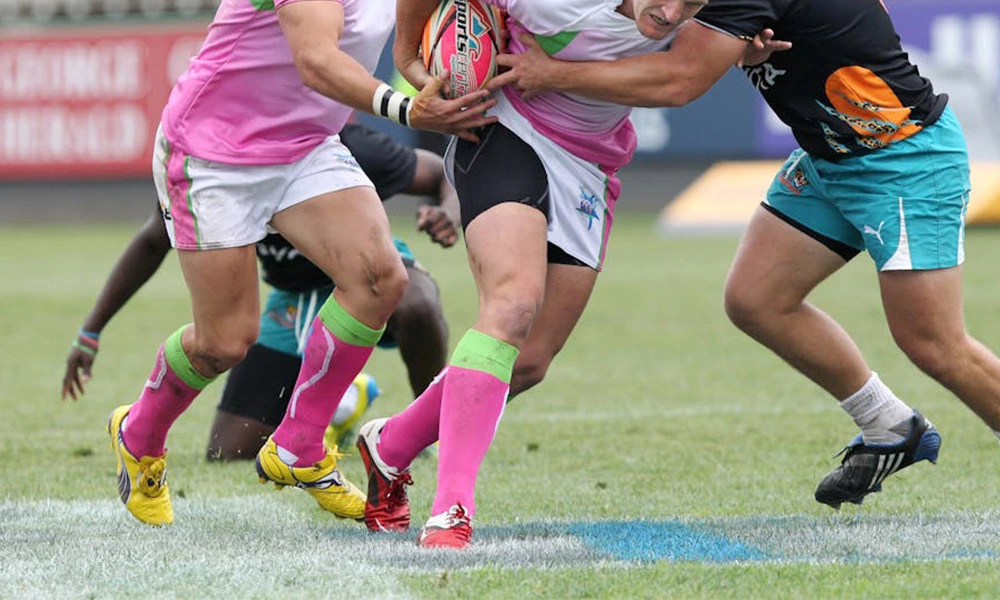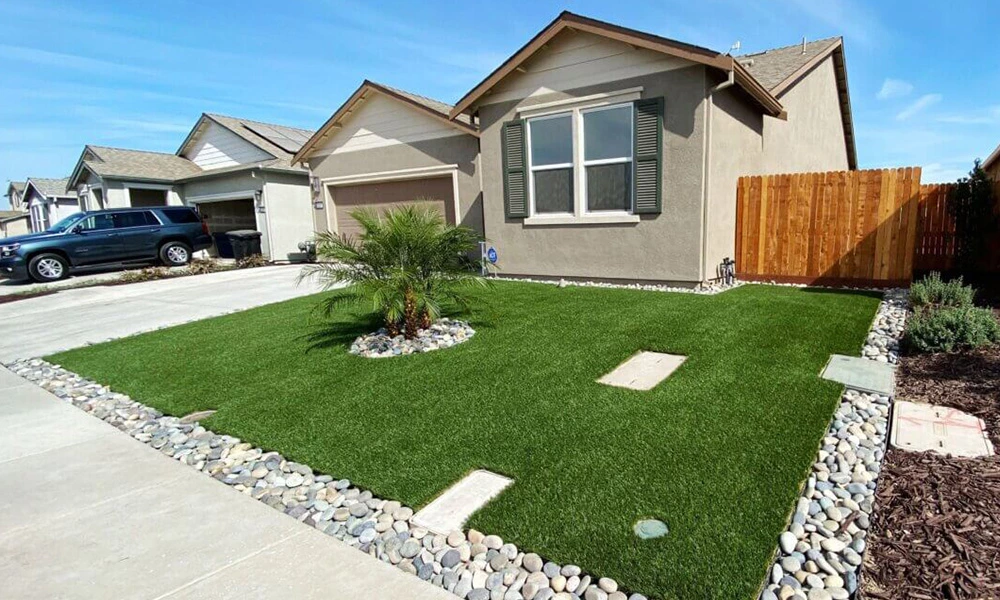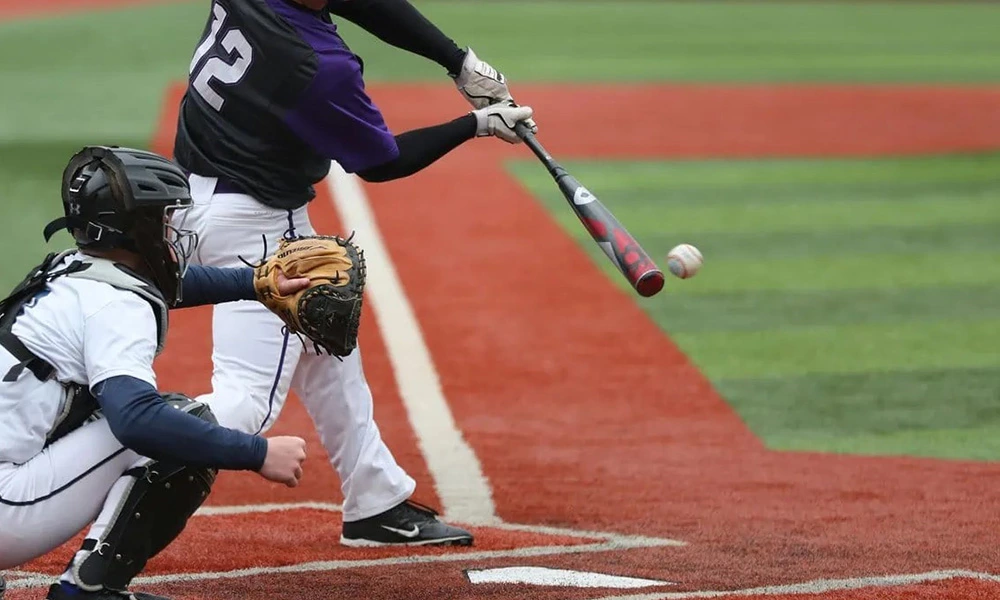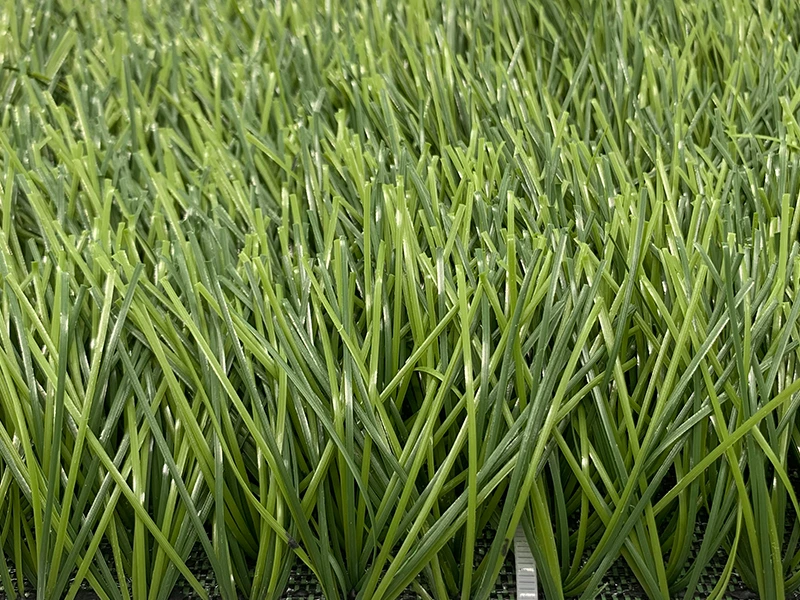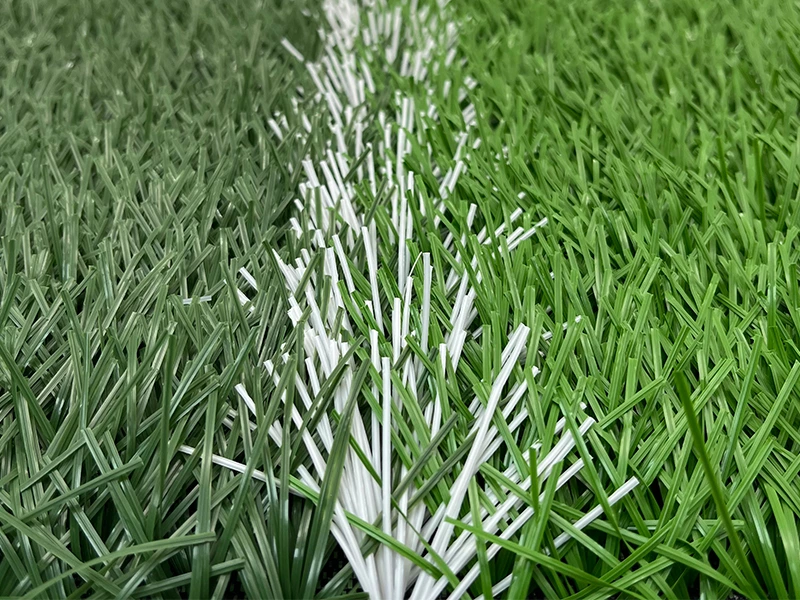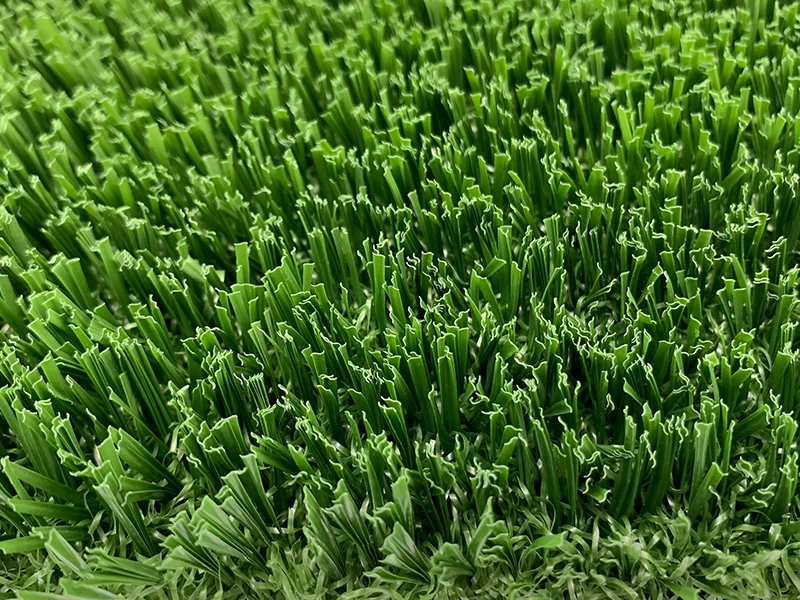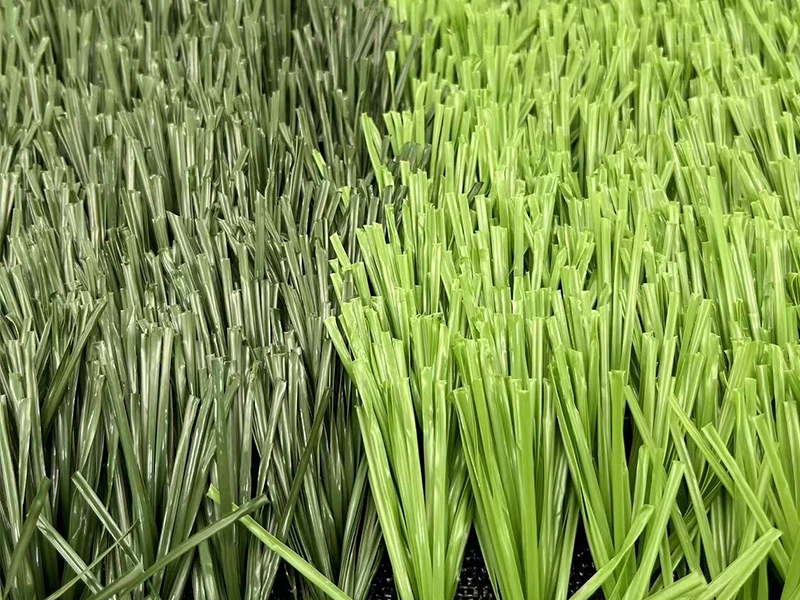What is an artificial grass rugby field? Its advantage?
What is an artificial grass rugby field?
Artificial grass rugby fields are special sports fields made of high-performance synthetic fibers and shock-absorbing filling systems, designed for high-intensity and frequent confrontation rugby sports. UNIGRASS artificial rugby turf strictly follows the World Rugby international standards. The grass is thick and wear-resistant, with excellent UV resistance and weather resistance, and can remain stable even in extreme climatic conditions. Its natural-like design gives the turf a realistic appearance and feel, while providing excellent impact resistance and safety protection.
The Evolution of Artificial Grass in Rugby
Artificial turf rugby fields are high-performance synthetic sports surfaces. In the 1960s-1980s, early turf products, known as "hard carpets," used short fibers and rudimentary infill, resulting in high injury rates and a poor playing experience, earning them a notorious reputation in the rugby world.
In the early 21st century, the emergence of long fibers, shock-absorbing pads, and hybrid infill systems significantly improved the safety and performance of artificial turf. Organizations such as World Rugby introduced turf field certification systems. Today, artificial turf is no longer a cheap substitute for natural grass, but a professional solution capable of meeting the highest level of competition requirements, adapting to extreme climates, and maximizing operational efficiency.
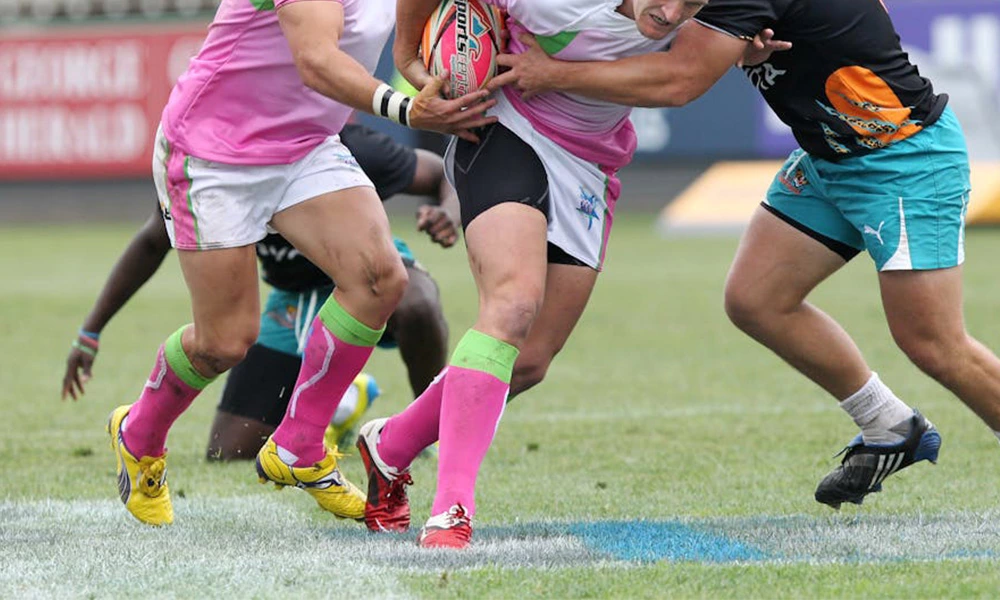
What is the size of an artificial grass rugby field?
Whether it is an international competition or daily training, UNIGRASS provides you with standard artificial grass rugby field solutions.
Tournament-level standard size
Designed for professional competitions and club training, the overall size is 120 meters × 70 meters (including the scoring area), equipped with a buffer zone and high-strength grass structure, fully in line with World Rugby standards, helping players to achieve their competitive potential at the highest level.
Recommended size for amateurs and schools
Suitable for youth training, schools, and communities, the recommended size is 90–100 meters × 50–60 meters, which not only retains the sports experience of rugby, but also adapts more flexibly to limited space, with more controllable construction costs and more efficient maintenance.
Why do top rugby clubs choose artificial turf?
Top rugby clubs generally choose artificial turf because it is usable year-round and has a higher field utilization rate than natural grass. At the same time, artificial turf requires no frequent watering or mowing, reducing costs.
| Advantages | specific performance |
| Safe and reliable | - Artificial turf provides shock absorption and cushioning, reducing the risk of injury when players collide or fall; - It is free of potholes and slippery surfaces, ensuring stable passing/running trajectories and improving the fairness of the game; - It is wear-resistant, withstanding high-intensity competition and frequent use, making it suitable for the daily training and match needs of professional teams. |
| Worry-free all year round | - Available in all weather conditions, it prevents water accumulation in rainy weather and is unaffected by high temperatures, ensuring that events can proceed as scheduled; - Compared to the annual water consumption of natural grass, it reduces water resource consumption and is more environmentally friendly. |
| Easy to maintain | - No watering, fertilizing, or pruning required, only basic cleaning is needed, resulting in low long-term costs; - Suitable for year-round use, increasing venue utilization and ideal for clubs to increase revenue and for multiple training sessions on campus. |
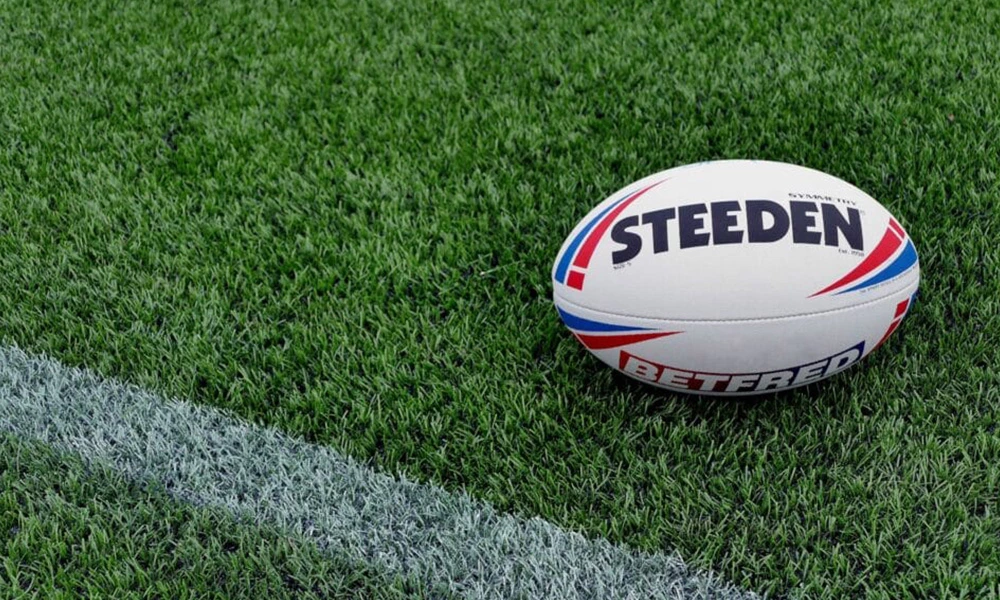
Artificial Grass vs Natural Grass: Which is Better?
| Comparison items | Artificial grass rugby field | Natural grass rugby field |
| Frequency of use | 30+ hours per week, all-weather use | Due to weather restrictions, the field needs to be closed in the rainy season |
| Safety and consistency | High shock absorption design, uniform surface, reducing the risk of injury | Potholes and mud are prone to occur, and there is a risk of slipping Maintenance cost |
| Maintenance cost | Easy maintenance, low cost | Requires a large amount of water, manpower and fertilizer, and the cost is high |
| Weather adaptability | Anti-ultraviolet, rain and snow, use all year round | Easy to damage in extreme weather, limited use |
| Appearance and foot feel | Simulated grass silk, visual and tactile feel close to natural grass | Natural appearance, but requires continuous maintenance |
| Service life | 8-10 years of stable performance | Easy to age and damage, life is affected by climate |
Climate Adaptability
• Arid and Water-Scarce Regions: In California, Australia, the Middle East, and other areas, artificial turf is the only viable option for the continued operation of rugby, elevating its water-saving value from an advantage to a matter of social responsibility.
• Rainy and Wet Regions: Compared to the plight of natural grass fields turning into mud during the rainy season, the economic value (tickets, broadcasting rights) of artificial turf in ensuring games can be held on schedule is immeasurable.
• High-Altitude and Cold Regions: Excellent drainage systems allow for faster recovery from snowmelt. Some systems can even integrate underground heating facilities to ensure usability during winter.
How to choose artificial rugby turf
Turf Specifications:
• Grass Height/Density: Due to the demands of running and diving in rugby, a grass height of 50-60mm is recommended, with a density exceeding 10500/㎡ to ensure wear resistance;
• Base Material: Opt for a base material composed of rubber and PU to improve shock absorption;
• Infill Material: A mixture of quartz sand and rubber granules can be used, balancing stability and cushioning;
Selection based on scenario:
Professional competition venues: Choose high-density, high-shock-absorbing high-end models to prioritize athlete protection;
Campus/community training venues: Choose cost-effective models, focusing on wear resistance and ease of maintenance; Indoor training halls: Select short grass models, approximately 30-40mm, suitable for basic technical training.
Artificial rugby turf maintenance
Daily maintenance: Use a brush to comb the grass fibers to prevent them from flattening. Clean up fallen leaves and debris promptly to prevent water accumulation.
Regular maintenance: Perform deep cleaning monthly or quarterly, check for missing infill particles, and replenish as needed.
Emergency maintenance: Check drainage after rain to prevent localized waterlogging; repair damaged turf, using specialized adhesive to glue small areas of damage.
Summary
For rugby clubs and educational institutions that value safety, economy and operational efficiency, UNIGRASS artificial turf rugby field is a more scientific and long-term choice. It not only meets the requirements of professional competitions and training, but also greatly reduces maintenance pressure and budget expenditure. As artificial turf technology continues to evolve, it is gradually becoming the preferred solution to replace natural grass.

